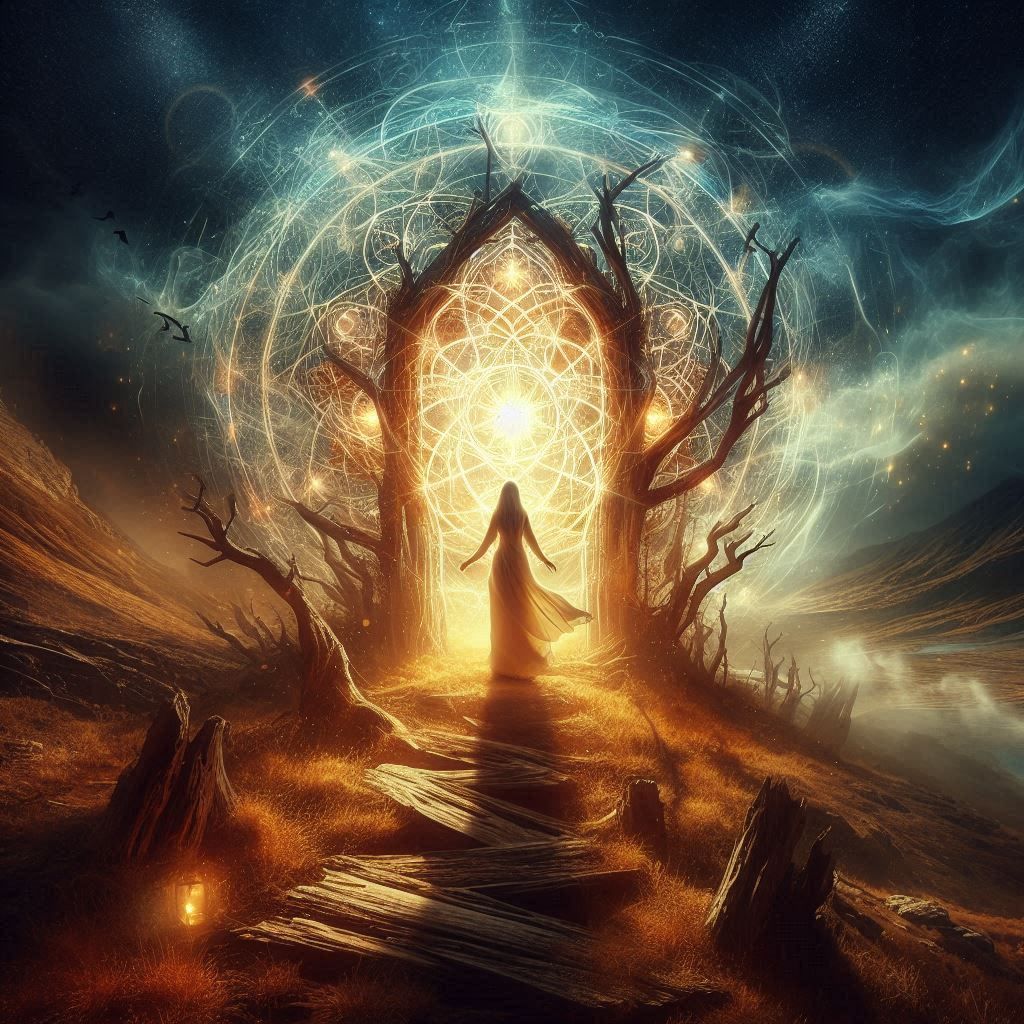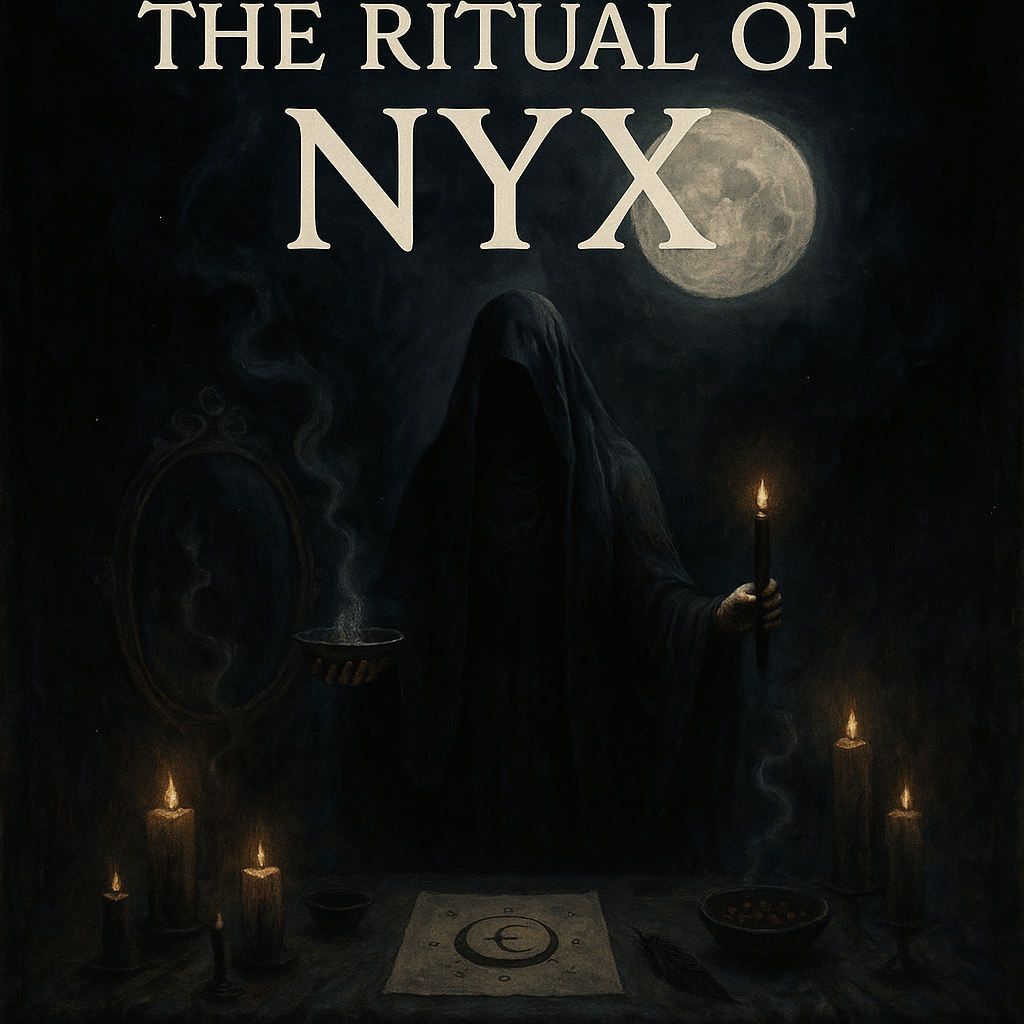Your cart is currently empty!

How to Get Started in Paganism: Just the Basics
Paganism is a rich and diverse spiritual path that draws from ancient traditions and modern practices. Whether you’re drawn to the mysteries of the natural world, the ancient gods, or the enigmatic realms of the occult, starting your journey in Paganism can be both rewarding and transformative. This guide will introduce you to the basics of Paganism, providing you with a solid foundation to begin your exploration into this mystical world.
What is Paganism?
Paganism is an umbrella term for a variety of spiritual paths that are rooted in ancient and nature-based traditions. It encompasses a wide range of beliefs and practices, from Wicca and Druidry to Heathenry and Hellenism. What unites these paths is a reverence for nature, a polytheistic worldview, and a focus on personal experience and spiritual growth.
The Essence of Paganism
At its core, Paganism is a celebration of the interconnectedness of all life. Pagans see the world as a living, breathing entity, and they seek to harmonize their lives with the rhythms of nature. This reverence for the natural world often translates into rituals and practices that honor the changing seasons, the phases of the moon, and the cycles of life and death.
Key Principles of Paganism
1. Reverence for Nature
Nature is not only seen as sacred but also as a reflection of the divine. Pagans believe that the Earth is a living entity, often personified as a goddess, and they strive to live in harmony with the natural world. This principle is expressed through rituals, celebrations, and practices that align with the cycles of nature.
2. Polytheism
Most Pagan traditions are polytheistic, meaning they honor multiple gods and goddesses. These deities are often associated with natural forces, such as the sun, moon, earth, and water. Pagans may work with a pantheon of deities from a specific tradition, such as the Norse, Greek, or Celtic gods, or they may honor a more eclectic mix of deities.
3. Personal Experience
Paganism places a strong emphasis on personal experience and direct connection with the divine. This can be through meditation, ritual, or communion with nature. Personal gnosis, or direct spiritual knowledge, is highly valued and often seen as more important than dogma or doctrine.
4. Ethics and Values
Many Pagan paths have ethical guidelines, such as the Wiccan Rede (“An it harm none, do what ye will”) or the concept of honor in Heathenry. These values often emphasize respect for others, the environment, and oneself. The emphasis is on personal responsibility and living a life in alignment with one’s values and principles.
Getting Started
1. Research and Reading
Begin your journey by immersing yourself in the lore and wisdom of various Pagan traditions. Some recommended books include:
- The Spiral Dance by Starhawk
- Drawing Down the Moon by Margot Adler
- The Druid’s Handbook by John Michael Greer
- Norse Mythology by Neil Gaiman
- Wicca: A Guide for the Solitary Practioner By Gerald Gardner
- The Complete Book Of Witchcraft by Raymond Buckland
Delve into these texts with an open mind and a curious heart, allowing the ancient wisdom to resonate with your inner self.
2. Explore Different Traditions
Paganism is diverse, so take time to explore different traditions and see which resonates with you. You might feel a connection to Wicca, Druidry, Heathenry, Hellenism, or another path. Each tradition has its own unique practices and beliefs, and finding the one that aligns with your spirit is a journey in itself.
3. Connect with Nature
Spend time outdoors and observe the natural world. Take note of the changing seasons, the phases of the moon, and the cycles of life and death. Many Pagans find a deep spiritual connection through nature, seeing it as a reflection of the divine. Walk barefoot on the earth, meditate by a flowing river, or simply sit under the moonlight and feel the ancient rhythms of the Earth pulsate through you.
4. Meditation and Ritual
Meditation and ritual are key components of Pagan practice. Begin with simple meditations to quiet your mind and connect with your inner self. You can also perform basic rituals, such as lighting a candle to honor the elements or offering a libation to the gods. Rituals can be as simple or elaborate as you feel called to make them, and they often involve invoking the elements, honoring deities, and setting intentions.
5. Join a Community
Connecting with other Pagans can provide support and guidance on your spiritual journey. Look for local Pagan groups, online forums, or social media communities where you can share experiences and learn from others. The sense of belonging to a community that shares your values and beliefs can be profoundly enriching.
Essential Tools for Beginners
- Altar: A sacred space to honor the divine, which can include candles, statues, crystals, and other sacred objects. Your altar is a personal reflection of your spiritual journey and can be as simple or elaborate as you wish. For more info on this subject view https://x.gd/O0R3N
- Divination Tools: Tarot cards, runes, or pendulums to seek guidance and insight. These tools can help you tap into your intuition and connect with the unseen realms.
- Herbs and Incense: Used in rituals and spellwork to invoke specific energies and intentions. Each herb carries its own unique properties and can enhance your magical workings.
- Journal: Keep a record of your experiences, dreams, and reflections as you progress on your path. A journal can be a powerful tool for self-discovery and spiritual growth.
- Grimoire: Create your book of magic including spells, rituals, incantations, evocations, and more.
Celebrating the Wheel of the Year
Many Pagans celebrate the Wheel of the Year, a series of eight seasonal festivals that honor the cycles of nature:
- Samhain (October 31) – Honors the ancestors and marks the end of the harvest. It is a time to remember and honor those who have passed and to reflect on the cycles of life and death.
- Yule (Winter Solstice) – Celebrates the rebirth of the sun. As the longest night of the year gives way to the return of the light, it is a time of renewal and hope.
- Imbolc (February 1-2) – A festival of light and purification. Celebrating the first signs of spring, Imbolc is a time of cleansing and preparation for new beginnings.
- Ostara (Spring Equinox) – Celebrates the arrival of spring. With day and night in perfect balance, Ostara is a time of growth, fertility, and renewal.
- Beltane (April 30-May 1) – A festival of fertility and growth. Marked by joyous celebrations, Beltane honors the life force and the blossoming of the Earth.
- Litha (Summer Solstice) – Honors the power of the sun at its peak. Litha is a time of abundance, strength, and the fullness of life.
- Lammas (August 1) – Celebrates the first harvest. Lammas, also known as Lughnasadh, is a time to give thanks for the bounty of the Earth and to recognize the cycles of sowing and reaping.
- Mabon (Autumn Equinox) – Marks the second harvest and the balance of light and dark. Mabon is a time of reflection and gratitude, as we prepare for the darker months ahead.
The Mystical Journey
Embarking on the path of Paganism is a deeply personal and mystical journey. It is a journey of self-discovery, spiritual growth, and connection with the divine forces of nature. As you explore the ancient traditions and modern practices of Paganism, you will uncover the wisdom and magic that lies within and around you. Embrace this journey with an open heart, and let the mysteries of the universe unfold before you.
Conclusion
Starting your journey in Paganism is about discovering your connection with the natural world and the divine. It is about embracing a path of personal growth, wisdom, and spiritual enrichment. By immersing yourself in the practices, principles, and traditions of Paganism, you open yourself up to a world filled with wonder, magic, and profound beauty. May your path be blessed with insight, inspiration, and a deep sense of belonging to the ancient and mystical tapestry of life.






